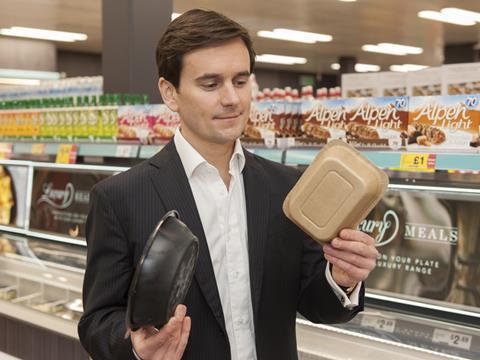
The plastic tide is turning. In the wake of mounting consumer anger over unnecessary wrapping and the government’s call for plastic-free supermarket aisles, Iceland this week pledged to ditch all plastic-packaging from its own-brand products by 2023, and called on other retailers to follow suit.
“The world has woken up to the scourge of plastics,” said MD Richard Walker. “A truckload is entering our oceans every minute, causing untold damage to our marine environment and ultimately humanity.”
What are other supermarkets doing to cut plastic?
Tesco: Wants to make all packaging recyclable or compostable and halve total packaging weight over 2007 levels by 2025. Has removed polystyrene from fish packs and moved from double to single-layer meat trays.
Asda: Has cut its packaging weight in half since 2007. Moved from plastic to glass bottles for all Asda brand vinegar and reduced plastic across its own Eden Falls water bottles.
Sainsbury’s: By 2020, it plans to cut its own-brand packaging in half compared with 2005. Has already reduced it by 31% and claims nearly 40% of its own packaging uses recycled content.
Morrisons: Has launched returnable ‘bins’ for fish products to cut use of poly boxes and has reduced the thickness of meat packaging films and trays.
Waitrose: Plans to make all own-label packaging recyclable or compostable by 2025. Has launched sandwich wrappers that are easier to recycle, launched biodegradable cotton buds and trialled a non-plastic punnet for tomatoes.
Aldi: Recycles 100% of its cardboard and plastic waste, and is working to reduce its overall packaging weight as part of its Courthauld 2025 commitments. Has also pledged to introduce more recyclable packaging materials and is working to increase the number of products transported in reusable containers, such as returnable crates.
Lidl: Has charged for plastic carrier bags for 23 years and removed all single-use bags from stores in 2016. Eliminated microbeads from its cosmetic and household products ahead of legislation and has committed to replacing plastic-stem cotton buds with biodegradable stems.
M&S: One of the founding partners of the cross-industry partnership, Pledge 4 Plastics developed by WRAP and Recoup to promote awareness of the importance of recycling plastic bottles, tubs and trays. Claims over 90% of its packaging is recyclable and is working with partners to develop facilities for the other 10%.
Reduced its packaging weight by 25% between 2007 and 2012, and by another 10% per item between 2012 and 2014. Exploring the use of plastics made from plant-based oils rather than petroleum-based oils.
The Co-op: Aims for 80% of its packaging to be easily recyclable by 2020. Has already simplified its protein packaging to make it easier to recycle, including its chicken breast trays and cooked meat trays.
It’s a worthy commitment. But given the important role plastic packaging plays in protecting and preserving food, how is Iceland hoping to pull this off? And should other supermarkets be looking to do the same?
According to Greenpeace, supermarkets are generating one million tonnes of plastic annually, which is contributing to the estimated 12.7 million tonnes of plastic ending up in our oceans each year.
It’s a problem that has been growing for decades. Earlier this year, scientists pointed to the nearly 18 tonnes of plastic found on Henderson Island in the eastern South Pacific as evidence of the “grotesque” extent of marine plastic pollution.
But it was a rallying cry from David Attenborough in the final episode of Blue Planet II in December that really drove the issue home for consumers. Since then, a groundswell of anti-plastic sentiment has surged across Britain, prompting PM Theresa May to denounce plastic pollution as “one of the great environmental scourges of our time” and call for plastic-free supermarket aisles as part of government’s 25-year environment plan.
Iceland insists, however, that its commitment to ditch plastics is no kneejerk reaction to May’s demands. “We have been working on this move for a considerable time,” says head of packaging Ian Schofield. Two new ready meal ranges launched this week debuting the British-made wood-pulp trays that will eventually replace plastic trays across Iceland’s own-label range, have been in development for a year, he adds.
Iceland plans to take a five-year phased approach to eliminating plastic packaging across 1,400 own-label products from around 250 suppliers. Some of the alternative materials it needs - such as the wood-pulp trays - have already been sourced, but it is still hunting for others. “We are looking at both new technologies and some old ones, including paper, cellulose, glass bottles and metal,” says Schofield.
Iceland’s plan is undoubtedly ambitious, especially given the warnings from the wider retail sector about the challenges of eliminating plastic altogether. “Packaging still plays an important role in reducing food waste and has to be seen in the wider context of the total environmental impact of our food supply chain,” said BRC director of food policy Andrew Opie in response to the government’s call for plastic-free aisles.
The FDF has also stressed the important role plastic packaging plays in minimising food waste, as well as ensuring food safety. “This role would have to be duplicated by any alternative packaging material,” it says.
However, Walker is convinced it is up to the retail sector to start investing in technologies that can deliver the same function as plastics. “The onus is on retailers, as leading contributors to plastic packaging pollution and waste, to take a stand and deliver meaningful change,” he said on Monday.
As a frozen food specialist, Iceland does arguably have an advantage over its competitors when it comes to cutting plastic. “A large part of our own label range is frozen food, where we have all the barriers we need through the natural freezing process,” Schofield admits.
However, the retailer has also committed to replacing plastic packaging across its extensive fresh and chilled own-label range. “We are confident that alternative packaging solutions are deliverable by 2023,” insists Schofield, who suggests paper and board could be treated with “coatings to provide the necessary barrier protection”.
Iceland is confident that the shelf life of its products will not suffer from the move. There may have to be some compromises on fresh produce when it is no longer wrapped in plastic, Schofield admits, but that has to be “weighed against the removal of plastic waste from the oceans and landfill”.
While Iceland is taking a bit of a gamble on future technologies, it won’t be taking any risks when it comes to health and safety, insists Schofield. “All alternative solutions to existing plastics will be rigorously tested to ensure they offer comparable or better protection to our food than the plastic we are currently using,” he adds.
’Packaging plays an important role in reducing food waste’
The retailer won’t be asking shoppers to cover the costs of its “substantial” investment into packaging either. “We do not intend to pass any costs on to our customers,” says Schofield.
Iceland’s ambitious approach has been welcomed by Greenpeace UK, which has criticised the government and other retailers for their “timid and piecemeal” approach to tackling the plastics problem.
“When plastic is in the environment it is a hazard to wildlife, and it is making its way back up the food chain on to our dinner plates,” says oceans campaigner Tisha Brown.
“We need to do all we can to stop the supply of plastic entering our oceans now, not in 25 years.”
However, Wrap, while welcoming of the leadership Iceland is showing on the issue, doesn’t think it would be a realistic model for the wider grocery sector to adopt right now. “There may well be opportunities to reduce the amount of plastic packaging in supermarkets, but it still plays an important role in protecting food,” says Peter Skelton, Wrap strategic partnerships manager.
Which isn’t to say other retailers should just sit back and wait. Keen to find a solution to the problem, Wrap is launching a major new UK initiative with the Ellen MacArthur Foundation to create a circular economy where plastics are valued and never end up as waste.
It will be working with retailers and brands - as well as government, local authorities and the waste sector - to develop a complete end-to-end solution that encompasses everything from eliminating unnecessary single-use packaging to making sure all packaging is reusable, recyclable or compostable, and improving the collection and recycling of plastic packaging.
“Retailers and brands will have a crucial role to play around embedding practices in their businesses to ensure their packaging is recyclable, and making sure they communicate that to consumers, as well as creating demand for recycled plastics in their supply chain,” says Skelton.
This sort of circular economy approach is supported by the packaging industry, which insists plastic still has an important role to play in a sustainable and safe food chain.
“We have to protect and preserve our fresh food in a material that fulfils its purpose while cutting down overall waste” says Daniel Dayan, CEO of the Klöckner Pentaplast Group, the largest user of post-consumer recycled plastic (rPET) in the UK for the packaging of food. “Demonising plastic isn’t the solution. Truly understanding the benefits of this valuable resource is.







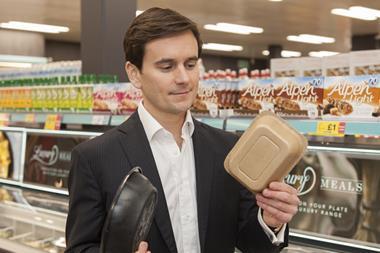
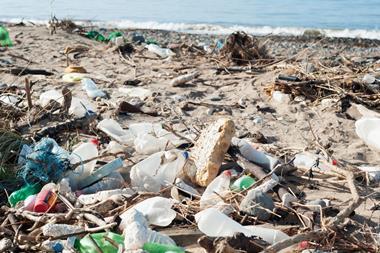
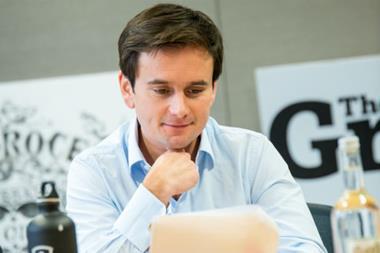
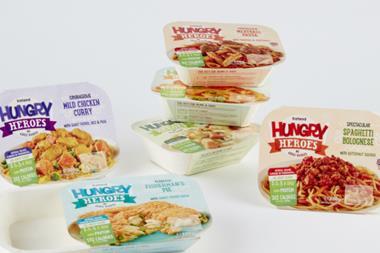
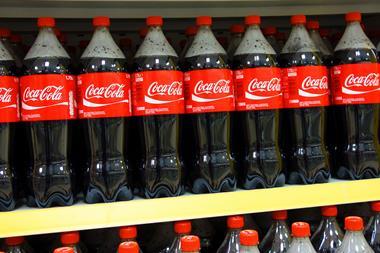
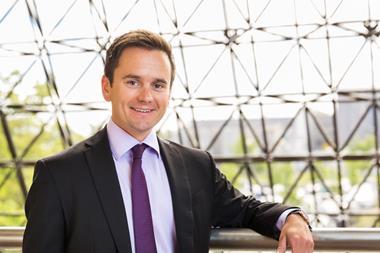






No comments yet